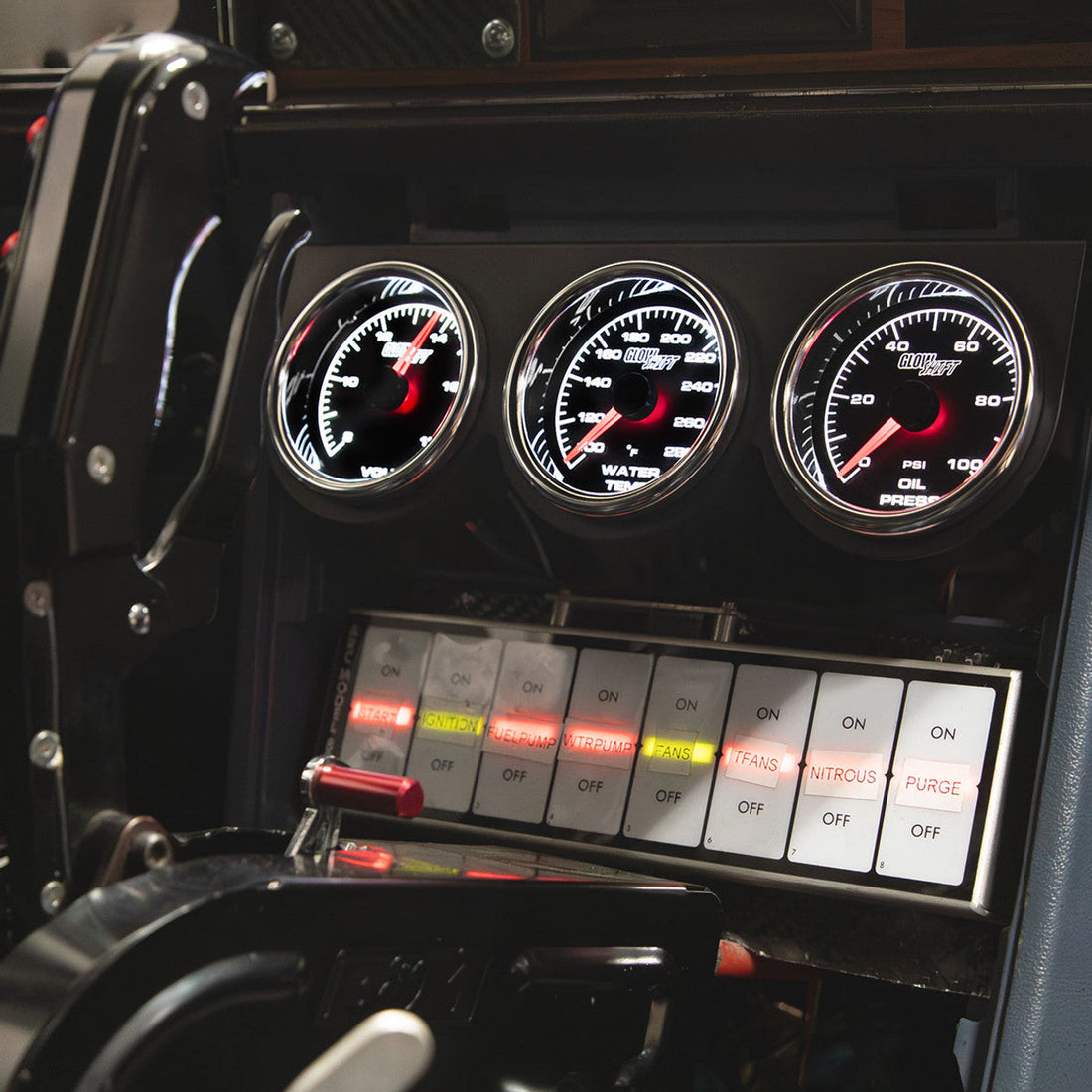The beating heart of a race car is the engine, and what pumps through the veins of the motor is oil specifically made for the vehicle. This lifeblood keeps the engine revving, but the temperatures it faces when in operation could influence the speed and the car’s limits. Gain a better understanding of how engine oil temperature in race cars with this guide. Once you cross the virtual line, you’ll not only know the science of engine oil temperature—you’ll also know the action.
Engine Oil: The Crimson Thread of Performance
When metal meets metal at unimaginable speeds in the belly of an engine designed to break ground and records, temperature control becomes an art. From the hairpin bends at Monaco to the unending straights of Le Mans, understanding the engine oil temperature is critical. It could make the difference between a podium finish and an abrupt stall.
Engine Oil Temperature Basics
Unlike turbo boost and horsepower, engine oil temperature does not flaunt itself. And yet, it is one of the pivotal factors determining the engine’s life and power delivery. It’s the unacknowledged hero powering all other glitzy performance metrics.
Engine oil, a high-performance protector, lubricates the engine’s myriad moving parts, reducing friction and carrying heat away to the cooler. In a race car, with every twist and turn, the engine oil temperature endures extremes that could test its very constitution.
The thoughtfully calibrated temperature range ensures that the oil neither thins out too much to become ineffective nor thickens to the point of diminished flow. This calibration guarantees that the engine runs like a well-oiled machine.
Factors Influencing Oil Temperature
An oil molecule’s journey from the sump to the last camshaft bearing is tiresome. It encounters many factors that can sway its temperature, including the following.
External Temperature
The ambient heat or cold can cause significant shifts in the oil temperature. On a hot summer day, a plodding car may see oil temperatures soar, while a cooler climate might produce too dense oil to flow freely.
Engine Load
The heavier the throttle, the more action the engine gets. Increased engine load means burning fuel, generating more heat, and raising the oil temperature.
Oil Type
Different engines demand different oils, and the oil’s viscosity directly affects its temperature behavior. Thicker oils might take longer to warm up and cool down, while thin oils may require extra attention to prevent overheating.
Monitoring Oil Temperature: The Eyes and Ears of the Engine
You must know where that line is to dance safely at the limit. Modern race cars rely on sensors and instruments to watch the engine oil temperature.
Instruments Onboard
These can vary from analog gauges to sophisticated digital readouts. Still, all serve the same purpose—to communicate the vital signs of the engine to the driver and the engineers in the pit.
Sensor Technology
Current sensor refinements provide a real-time and precise reflection of the engine oil temperature, alerting the driver to rises or falls and often interfacing with the car’s inbuilt management system.
Optimal Temperature Range: The Goldilocks of Temperatures
Just as a water-cooled engine maintains an optimal temperature range to avoid overheating, the oil within it seeks the sweet spot for effective operation. For most race car engines, the ideal range is between 212°F and 302F°F (100°C to 150°C), where performance and protection merge.
Peak Performance
When the optimum temperature reaches its peak, it ensures the engine runs efficiently, maintains the right viscosity, and circulates easily to provide the necessary lubrication.
Protection from Wear
The right temperature protects the engine’s moving parts from premature wear by maintaining an oil film that prevents direct metal-to-metal contact even under extreme loads.
Effects of High/Low Temperatures: The Paradox of Too Much or Too Little
Both extremes of the spectrum bring their own set of challenges and hazards.
High Temperatures
When oil temperatures spike due to high engine heat, the oil viscosity decreases, causing it to thin out and lose its lubrication efficiency. As a result, there is a higher likelihood of engine knock, overheating, and potential damage to engine components due to inadequate lubrication.
Low Temperatures
Conversely, when temperatures drop too low, the oil can thicken. This thickening can impede its flow, causing it to move sluggishly through the engine. This reduced flow could lead to a lack of lubrication in critical areas, increasing the risk of wear and damage to engine components over time.
Tips for Keeping Your Car Cool Under High Temperatures
In motorsports, engine oil management becomes a routine practice with high demands in balancing technical precision and intuitive expertise. This intricate practice involves monitoring, adjusting, and strategically planning solutions to complex problems in race car engines.
Advanced Cooling Systems
Many race cars have cooling systems to regulate the oil temperature within the optimal range for peak performance. These specially tailored cooling setups vary from basic air vents to sophisticated liquid cooling systems, ensuring the engine functions at its best under demanding racing conditions.
Oil Coolers
Dedicated oil coolers play a crucial role in maintaining optimal engine performance. Similar to how the radiator cools the engine coolant, these coolers specifically dissipate excess heat from the engine oil, ensuring the engine runs smoothly and prolongs its lifespan.
Driving Techniques
A smoother, less aggressive driving style can play a significant role in managing engine oil temperatures effectively. By reducing the workload on the engine through lighter loads, there is a decrease in heat generation, which allows the oil to function in the intense heat of competitive scenarios.
Get On Your Mark, Set, and Get Ready For Race Car Efficiency
Whether you’re a racing enthusiast, an automotive engineer, or a motorsport fan, this guide is your roadmap to grasp the impact of engine oil temperature on race car performance. Remember, the difference between good and great, finisher and winner, lies in the meticulous care and attention you invest in the oil fueling your racing passion.
Do you have a race car needing better oil? Check out Driven Racing Oil. Here, it’s all about elevating your race car performance, and we sure aren’t lacking the expertise here! Reignite your car’s heartbeat, and excel even further down the track with racing oil.



2 comments
REQUEST FOR QUOTES
RFQ 705
1 203-6797 Sensor speed(Engine) 1.00 ea
2 176-6219 Valve GP-Solenoid (12-volt) (Fuel
Shutoff) 2.00 ea
3 235-1790 Switch-Temperature (Engine Coolant) 1.00 ea
4 271-3543 Harness AS-Wiring 1.00 ea
5 288-6114 Cable AS 1.00 ea
6 288-6119 Cable AS 1.00 ea
7 281-0572 Switch (Pressure) 1.00 ea
8 281-1275 Switch (Pressure) 1.00 ea
9 281-1276 Switch-Pressure (Transmitter) 1.00 ea
10 309-5909 Switch (Fuel Pressure) 1.00 ea
11 309-5910 Sensor-Pressure (Fuel) 1.00 ea
12 281-1301 Switch-Pressure (Engine oil) 1.00 ea
13 288-3636 Sensor-Temperature (Engine Oil) 1.00 ea
14 288-3639 Sensor-Temperature 1.00 ea
15 288-3643 Switch-Temperature (Water Coolant) 1.00 ea
16 297-4659 Switch AS-Temperature (Water Coolant) 1.00 ea
17 193-5150 Switch AS-Temperature (96-DEG) (Coolant) 1.00 ea
18 196-7693 SWITCH PRESS 196-7693 1.00 ea
19 7E-6831 SENDER 7E-6831 1.00 ea
20 291-5829 Switch-High temperature (Coolant) 1.00 ea
21 281-2372 SWITCH LEVEL 281-2372 1.00 ea
22 270-3881 Sensor As-Speed 270-3881 (2-Pin) 1.00 ea
Poorly written article. Sounds like all AI written.